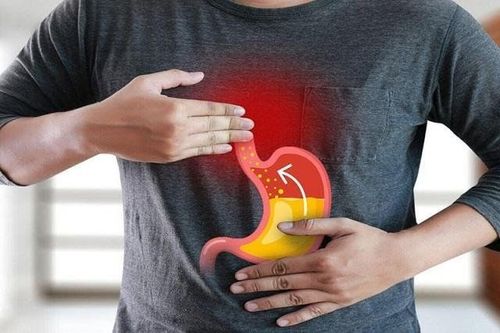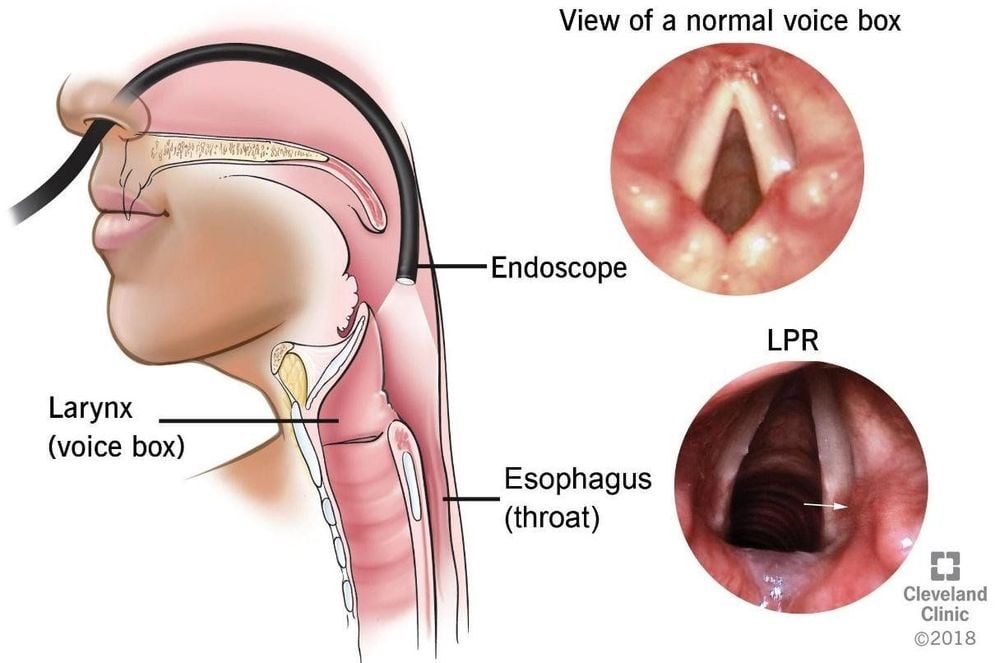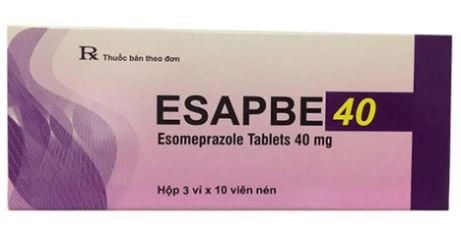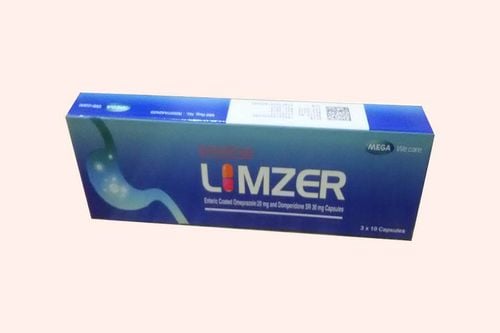This is an automatically translated article.
Post by Master, Doctor Mai Vien Phuong - Department of Examination & Internal Medicine - Vinmec Central Park International General Hospital
Occasional heartburn or acid reflux can happen to anyone. However, if you experience it two or more times most of the week, you may be at risk for complications that affect the health of your throat. Learn about the complications of frequent heartburn and how you can protect your throat from damage.
1. What is acid reflux?
During normal digestion, food travels down the esophagus through a muscle or valve called the lower esophageal sphincter and into the stomach.
During heartburn or acid reflux, the lower esophageal sphincter is relaxing or opening, when it shouldn't. This allows acid from the stomach to back up into the esophagus.
Although most people can experience heartburn from time to time, more severe cases can be diagnosed with gastroesophageal reflux disease (GERD). In these cases, it is important to treat the condition to reduce painful symptoms and discomfort, and to protect the esophagus and throat.
2. How GERD can damage the esophagus
The burning sensation you feel with heartburn is caused by stomach acid damaging the lining of the esophagus. Over time, repeated exposure of stomach acid to the lining of the esophagus can cause a condition known as esophagitis.
Esophagitis is an inflammation of the esophagus that makes the esophagus vulnerable to damage such as erosions, ulcers, and scar tissue. Symptoms of esophagitis can include pain, difficulty swallowing, and more acid reflux.
Your doctor can diagnose this condition with a combination of tests, including an upper endoscopy and a biopsy.
Your doctor will likely start treatment right away if you are diagnosed with esophagitis, as an inflamed esophagus can lead to more health complications.

3. Complications of untreated GERD and esophagitis
If GERD and esophagitis symptoms are not controlled, the acid in your stomach can further damage your esophagus. Repeated damage can cause complications:
Esophageal stricture: May be caused by scar tissue from GERD or a tumor. You may find it difficult to swallow or food gets stuck in your throat. Esophageal rings: Rings or folds of abnormal tissue that form in the lower lining of the esophagus. These bands of tissue can constrict the esophagus and make it difficult to swallow. Barrett's esophagus: This is a condition in which the cells in the lining of the esophagus are damaged by stomach acid and change to become similar to the cells lining the small intestine. All three of these complications can be avoided with appropriate treatment for frequent heartburn or GERD.
4. How Acid Reflux and GERD Can Hurt Your Throat
In addition to potentially injuring the lower esophagus, frequent heartburn or GERD can also damage the upper throat. This can happen if stomach acid backs up into the throat or nasal airways, called laryngeal reflux (LPR).
LPR is sometimes called “silent reflux,” because it doesn't always present symptoms that people easily recognize. People with GERD should be tested for laryngeal reflux to avoid any possible damage to the throat or voice. Symptoms of LPR may include the following:
Hoarseness Chronic throat clearing Sensation of a "lump" in the throat Chronic cough or cough that wakes you from sleep Dry sensation in throat Problems on voice (especially in singers)

5. Prevent future damage from acid reflux and throat
Whether you have frequent heartburn, GERD, LPR, or a combination of the two, it's important that you manage your symptoms to avoid other health problems. Talk to your doctor and try the following lifestyle modifications:
Eat smaller meals more often and take time to chew. Avoid overeating. Increase physical activity if overweight. Add fiber to your diet Increase fruits and vegetables in your diet. Stay upright for at least an hour after a meal. Avoid eating 2 to 3 hours before bedtime. Avoid irritating foods such as high-fat and high-sugar foods, alcohol, caffeine, and chocolate. Maintain a healthy weight. Quit smoking. Raise the head of the bed 15cm
Please dial HOTLINE for more information or register for an appointment HERE. Download MyVinmec app to make appointments faster and to manage your bookings easily.














